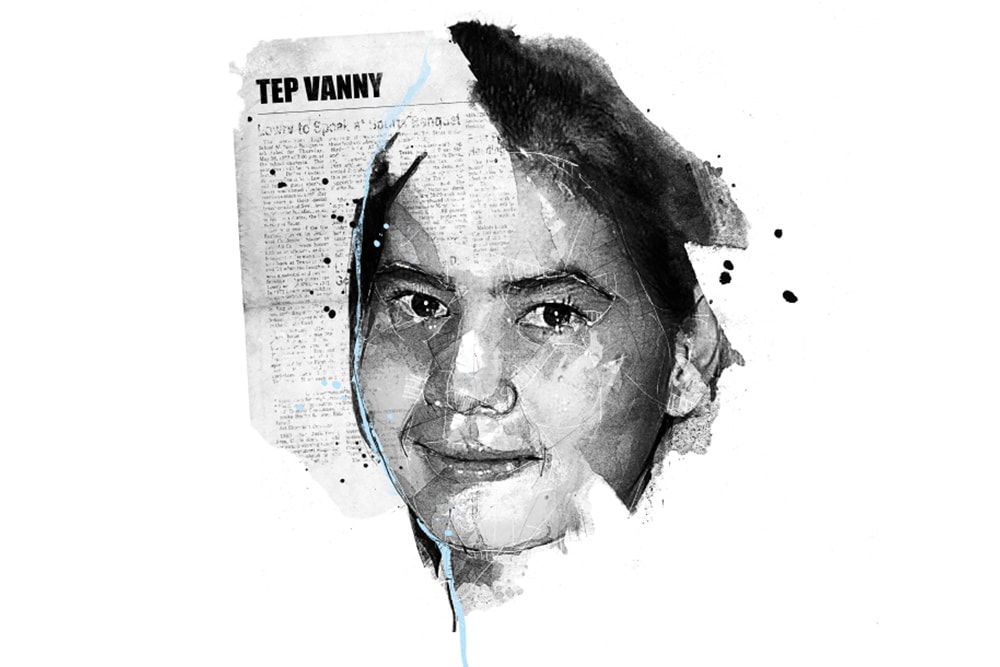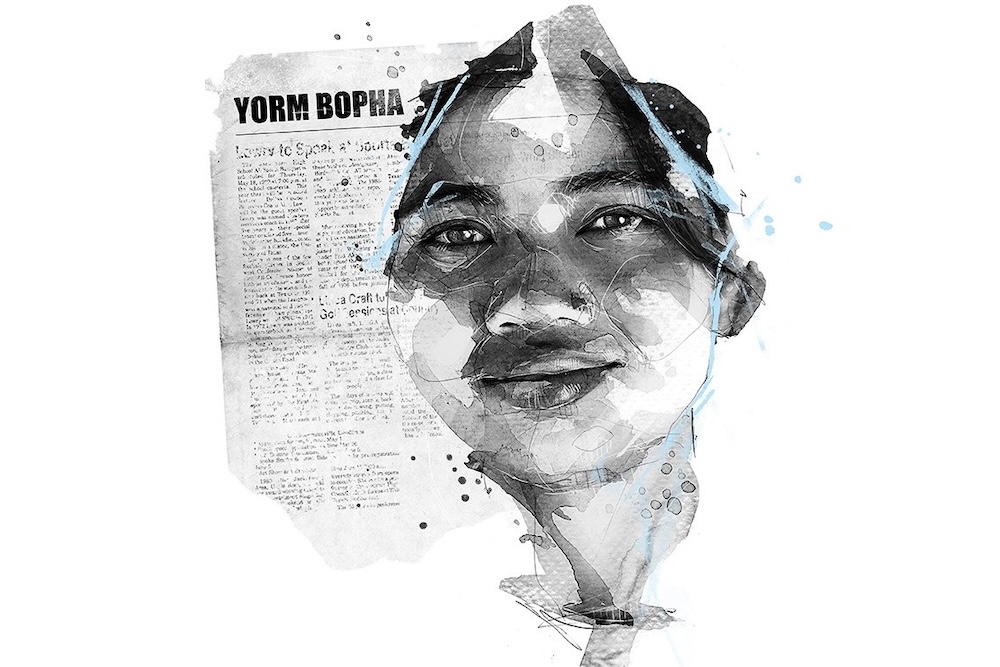Often jailed, but never silenced, Cambodia's Tep Vanny continues to relentlessly battle for the land rights of her country's most vulnerable people.
We are housewives and workers. We don’t have the power of politicians or police. We don’t have protection from Kangaroo Courts. We have each other.
Boeung Kak Lake was a large urban wetland in the Cambodian capital, Phnom Penh. Its waterside cafes and restaurants attracting tourists provided a living for local residents. In 2007 came the announcement that the lake had been sold for U.S. $80m to a Chinese company that would drain the lake, filling it with sand, with plans to build an elite residential area. By 2010 90% of the lake had been filled, and over 3,000 residents evicted, forced to resettle to the city outskirts. The environmental impact has led to flooding risks and the disappearance of fish and agricultural land on the lake’s banks that had been an important source of income for the local community.
With no rights to the land, those who lived by the lake struggled to hold onto their homes and were compelled to accept inadequate compensation payments. Inevitably this led to protests and, in May 2012, 13 women – ranging from 25 to 72 years in age – were each sentenced to 2 ½ years in prison for their part in the demonstrations, after a trial that lasted just three hours. Among them was Tep Vanny, already a lands rights veteran having been arrested on at least two occasions in the previous year for her part in the protests. The Boeung Kak 13, as they came to be known, were released a month later following an intense campaign inside and outside Cambodia.
True to form, on her release Tep Vanny went straight back into campaigning. In January 2014 she was among five women who were briefly arrested for demonstrating for the release of another land rights activist in the face of a blanket ban against all protests. Just three days later, Tep Vanny went to Geneva to observe UN Council on Human Rights scrutiny of how Cambodia was meeting its human rights commitments. Responding to the Cambodian government delegation’s dismissal of concerns raised by NGOs and other states alike, Tep said: The authorities have continually lied to us, arrested and beaten us, but the pain is now stronger in seeing them come before the entire international community with the same lies. In that moment, I wanted to stand up and shout out the truth, but instead I had to suffer quietly as I watched on.”
However, Tep Vanny did not remain quiet. In November 2014 she was arrested again, this time with 10 other protesters. They were each summarily sentenced to one year in prison for ‘traffic violations’ – blocking a road with a bed frame – during a protest. They were freed five months later under a royal pardon in April 2015.
Tep Vanny’s freedom was short-lived, as she was once again arrested on 15 August 2016 and subsequently convicted of “insulting a public official” in relation to her participation in a demonstration marking the 15th week of the “Black Monday” protests over the politically motivated imprisonment of five human rights defenders. She was sentenced to six days in prison and fined 80,000 Riel ($20 USD), but has since faced additional charges of “inciting violence” during a protest dating back to 2013. Tep Vanny was convicted under these charges and sentenced to 2 years and 6 months in prison on 23 February 2017. The Court of Appeal upheld this decision on 8 August 2017, and the Supreme Court again affirmed the conviction in February 2018.
Tep Vanny never lacked support from the Boeung Kak community and civil society groups in and out of Cambodia which consistently campaigned for her freedom. On 20 August 2018, she walked free after 700 days of unjust detention following a royal pardon granted to her by King Norodom Sihamoni. She vowed to continue with her activism and share her experience with other land rights advocates in the country.
Tep Vanny has earned several awards in recognition of her tenacious pursuit for justice. Among them was the prestigious 2013 Vital Voices Global Leadership in Public Life Award, granted to women who have made a difference to their communities. In a video accompanying the award she said: We are housewives and workers. We don’t have the power of politicians or police. We don’t have protection from Kangaroo Courts. We have each other.
Illustration by Florian Nicolle

